










From the rich maritime heritage of whaling towns to quaint island villages and grand seaside mansions of the Gilded Age, our small, comfortable ships can take you to the heart of New England’s most treasured destinations. Be welcomed back to your home away from home, where you can delight in the warm camaraderie of fellow guests and crew.










































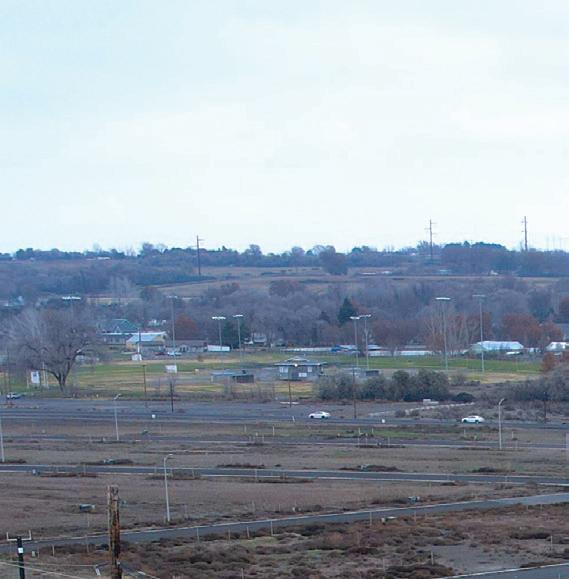




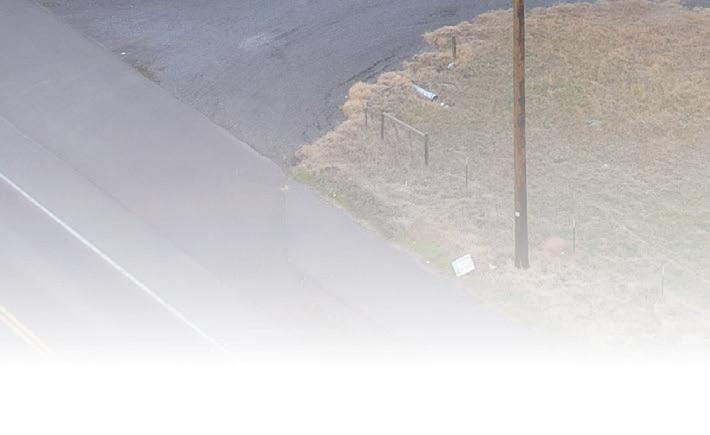




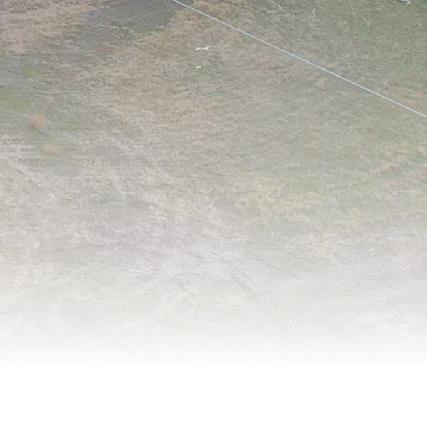
Due to aging infrastructure and the growing energy needs of UEC’s members, Umatilla Electric will be rebuilding 17 miles of existing transmission line along Elm Avenue. The project will connect to Highway 37, east of Hermiston.
The rebuild will ensure that members will experience safe and reliable power for years to come, and will aid in shorter outage restoration times to individuals in the area. The construction will begin at UEC’s headquarters (just north of “The Butte”) and will continue East along Elm Avenue to South Edwards Road, outside of Hermiston.
The existing line segments identified for improvement have served our membership for many years. These lines predominately serve residential and agricultural loads, which continue to experience growth. In order to continue to provide reliable, cost effective power while supporting this growth long into the future, UEC plans to rebuild these line segments.
The rebuild of this portion of transmission lines includes replacing the current poles with 10 - 20 ft. taller, weather resistant steel poles.
LEGEND:
In addition to the transmission lines, we will install our distribution underground in some areas.
While we are investing in upgrades to meet the community’s growing energy demands, we wish to work closely with our neighbors to ensure that all improvements are performed safely, and with as minimal disruption to the environment and the communities we serve as possible.


Initial construction activities have begun and will follow the schedule on the map below until project completion in late 2025.
By replacing the existing line, UEC will be improving the reliability and resiliency of the electrical system in the Hermiston area. These improvements ensure that UEC can provide reliable power long into the future.
During the construction stage, several vehicles will be involved in the process, which may mean reduced traffic speeds and possible congestion in the area. Please use
caution when traveling. We appreciate your patience as we perform this necessary work.
Most of the work will be conducted without the need to interrupt power. In some instances, an outage of one hour or more may be needed to safely transfer power to the new lines. Affected members will be notified in advance of a planned outage.
Transmission lines are high-voltage lines that carry electricity from generation plants to substations, or from substation to substation.
On average, rural electric cooperatives will build or rebuild one substation or switch yard every five years. Since 2014, UEC has built or rebuilt over 34 substations, improving the longevity of our transmission infrastructure by over 100%.

Use your phone’s camera to scan the QR code to the right to view other projects in our service territory: SCAN ME
Safety, Reliability and Resiliency are our Focus. Find Out How We Are Improving Your UEC Electric Service:
UEC now has a fully staffed System Operations Team monitoring our system at all time, improving outage response and duration.
Rebuilding Substations
In the last seven years, UEC has built or improved 34 substations across our service territory, ensuring safe and reliable service.
Our crews regularly perform inspections of lines, substations, and switch yards to ensure proper function and performance.
Updated Meters
Improved meter technology allows our System Operations Team to better respond to outages and route crews to more precise locations.
By David Herder

We can all think of improvements we would like to make in the new year, whether it is eating healthier, volunteering more or lowering our expenses. One way to spend less in the new year and for many more to come is to make household energy efficiency a goal.
Making small changes to your routine can add up to significant savings. But do you know what adds up faster than small things? Big things.
If you’re willing to make the initial investment, resolve to go big by taking on one of these projects.
For most houses, heating and cooling air makes up the largest chunk of energy use. If you’re paying to heat or cool the air, you want to keep it inside your house.
Common spots to insulate are attics, walls, floors and anywhere your house contacts the outside. Just like you want a jacket between you and a snowstorm, you want insulation between your home and the outdoors.
Insulation is rated in R-values. Suggested insulation R-values are between R-30 and R-60, depending on your region and climate. In many cases, it is a good idea to get professional insulation help.
Air sealing is another step to prevent drafts by physically closing gaps and cracks. In some cases, this can be as simple as adding caulking or weatherstripping to places where you notice drafts. Contractors and some utilities can do a home blower test to find and seal leaks.
If you’re considering doing some air sealing on your own, the Department of Energy offers tips at www.energy.gov/energysaver/air-sealing-your-home.
What are windows but walls you can see through? Like outer walls, they touch the outdoors, and unlike many walls, they aren’t filled with thick insulation. Heat gain and loss through windows account for 25% to 30% of residential heating and cooling costs, according to the Department of Energy.



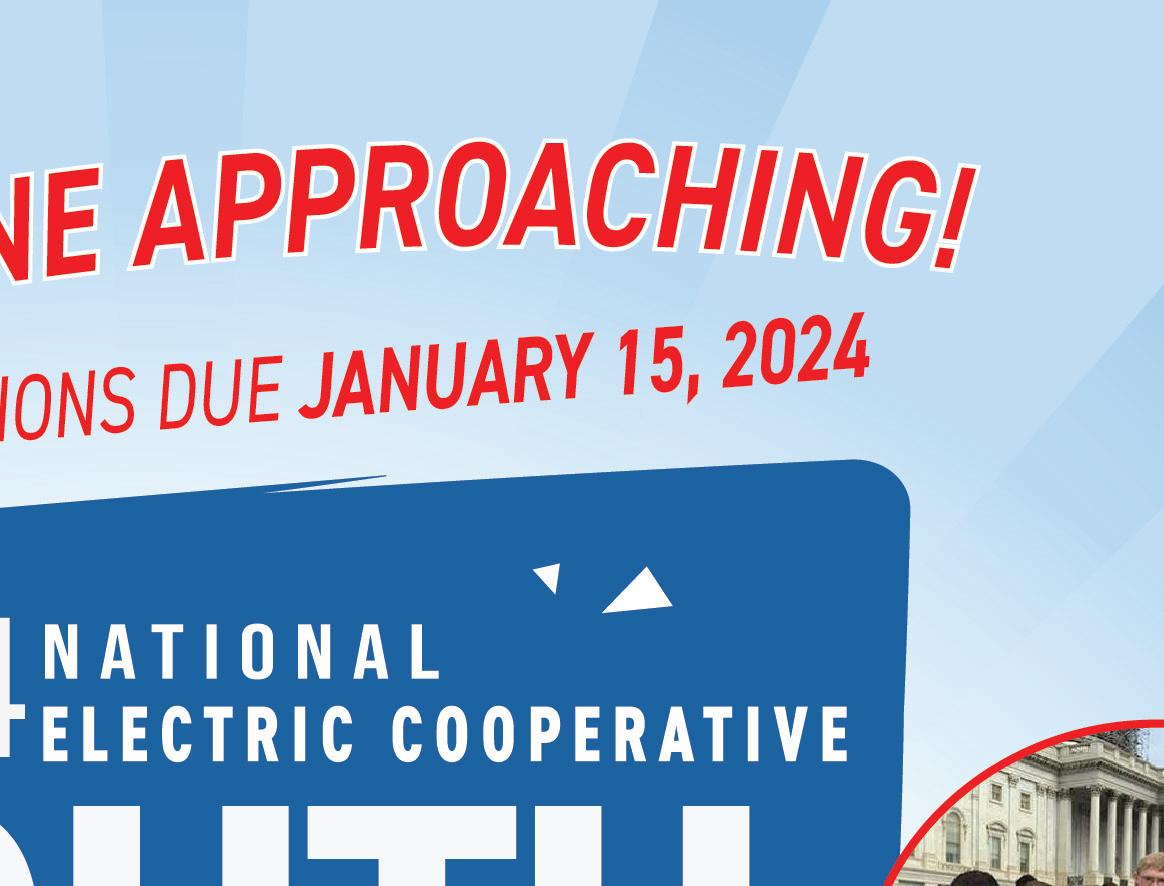

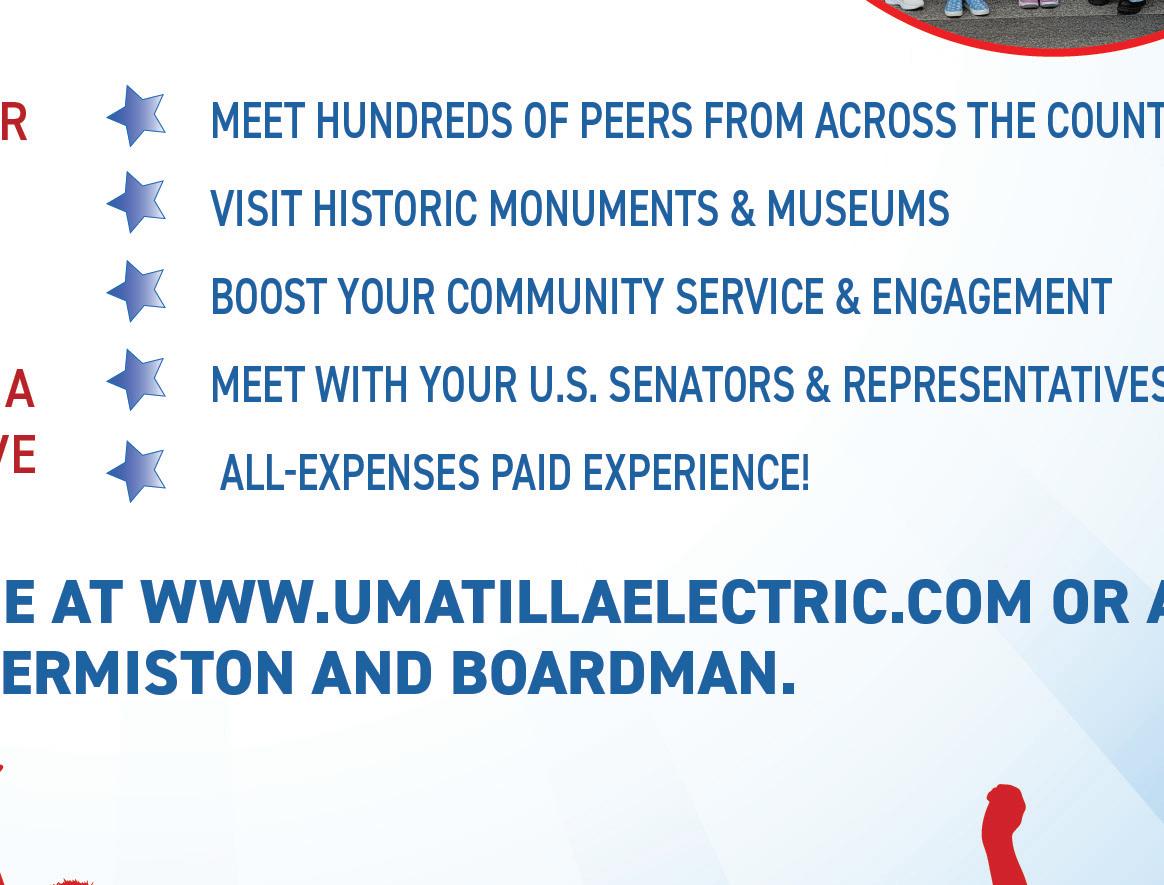


How can rechargeable hearing aids that t inside your ear costs only $297 and be every bit as good as those that sell for $4,800 or more?
The answer: The MDHearing™ NEO uses the same kind of technology incorporated into hearing aids that cost thousands more at a small fraction of the price. Satis ed MDHearing customers agree: High-quality, digital, FDA-registered rechargeable hearing aids don’t have to cost a fortune. NEO is a medical-grade, digital, rechargeable hearing aid offering sophistication and high performance; and works right out of the box with no time consuming “adjustment” appointments. You can contact a licensed hearing specialist conveniently online or by phone — even after your purchase at no cost. No other company provides such extensive support. Now that you know... why pay more? PLUS... It fits inside your ear.




































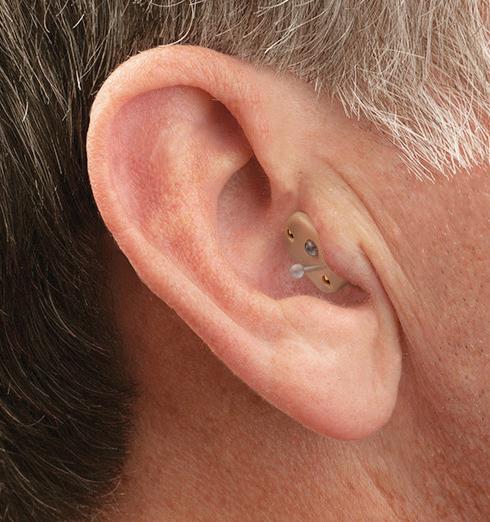




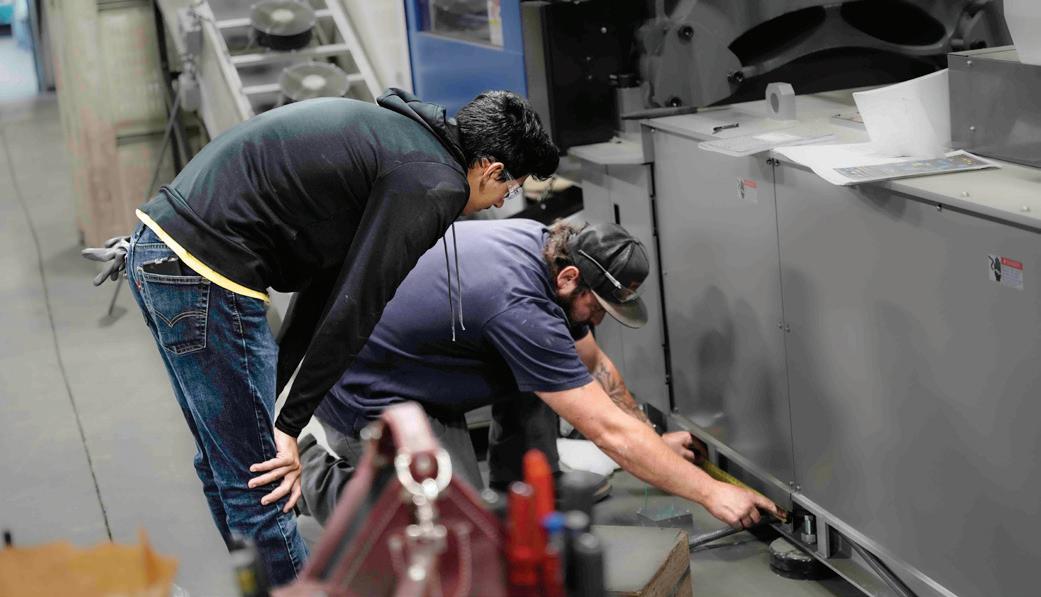
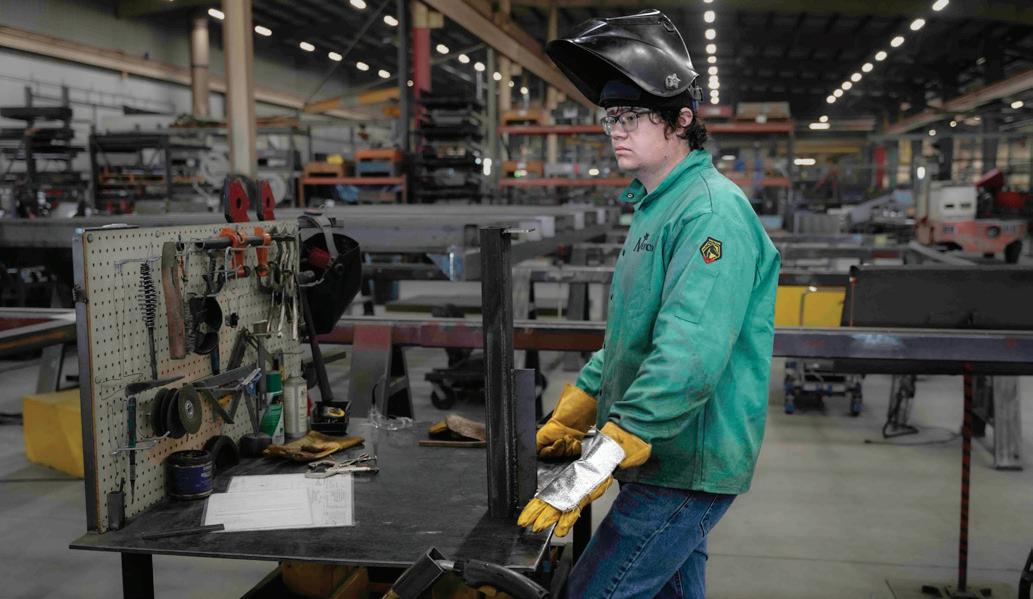

the summer. Chris Hug, a Madras High School graduate, is a machine operator at KEITH.
From his experience in high school manufacturing classes, Chris had a strong foundation to build upon during his internship.
“They taught us a whole lot about how to operate machines, better welding techniques, good electrical advice,” Chris says. “I knew I could definitely tackle a manufacturing career.”
Through career-connected programs, rural STEM hubs can build and inspire their workforces by allowing high school students to see a future for themselves in STEM careers.
“People are recognizing that there are many careers out there that are STEM that we didn’t see as STEM before,” says Erica
Compton, executive director of the Idaho STEM Ecosystem.
In rural Idaho, community-connected learning is flourishing in the education system.
“A trend that I’m seeing in students, especially in rural communities, is that beyond career-connected learning, what they’re really hungry for is communityconnected learning,” says Crispin Gravatt, communications manager at Idaho STEM Action Center. “They really are wanting to make sure that their communities are as evergreen as they can be. Parents want their students to feel like they can have a life in the communities that they love.”
In rural areas, community-centered approaches can show students they don’t
need to leave home to find better career opportunities.
As STEM education in rural communities propels students toward new horizons, the landscape of possibilities continues to expand. With strong support systems in place, students can transform their communities in more ways than they can dream of.
“What we’re focusing on at Oregon STEM and the STEM hubs is the awareness gap,” says Deb Mumm-Hill, Oregon STEM executive director. “First of all, you can’t envision and be what you can’t see. And the technology and the STEM industry—a lot of it is invisible. So, unless your parents, your school or your ZIP code can show you these invisible, amazing careers, you can’t dream to be them if you can’t see them.” n
The Oregon Coast, with its rugged cliffs and abundant marine life, holds a special place in the hearts of locals and visitors. Yet, it's been missing a critical piece of its ecological puzzle for decades: the sea otter. Elakha Alliance, a dedicated advocacy group, wants to complete that puzzle.
Since 2018, the nonprofit has aspired to restore the sea otter population to the Oregon Coast through advocacy, scientific research and educational awareness.
The alliance’s history goes back about 20 years, when David Hatch questioned the return of sea otters. At the time, David was the Oregon Coast Indian Tribes’ representative on the Oregon Ocean Policy Advisory Council.
One of the council’s staff members was Bob Bailey, an employee at the Department of Land Conservation and Development. During their time on the council, David and Bob became acquainted through their mutual passion for coastal conservation. During one of their conversations, David mentioned sea otters.
“He had built a small boat,” Bob says. “And in the process of building that small boat, was looking for a name for it. He
ran across the word elakha, which in the Chinook trade jargon means sea otter. He ended up naming his little boat ‘The Elakha.’ But it also set him on a path toward understanding and coming to realize sea otters had once been part of the lives of Indigenous people all along the Oregon Coast and beyond.”
David began sharing information about sea otters and seeking ways to create change. Through tribal and non-Indigenous connections, he gathered resources to support his project.
“Dave was out spreading the gospel, as it were, about returning sea otters,” Bob says.
Many years later, in 2016, Bob recalled this encounter. He reached out to David to see what had become of the sea otters.
“I didn't hear back from him and came to find out some weeks later that he had died quite tragically and suddenly that particular week,” Bob says. “[It] was devastating, of course, to his friends and family and all of us.”
Not wanting David’s life’s work to die with him, Bob took up David's mission and formed Elakha Alliance.
The organization was incorporated in 2018. Since then, it has supported many steppingstones in the long and arduous path of species reintroduction.










Graham Cracker Picnic Mix
¼ cup vegetable oil
¼ cup sugar
5 to 6 drops pink neon liquid food color
½ cup unpopped popcorn kernels
1 package mini pastel marshmallows
1 cup bear-shaped graham crackers
1 package white fudge-covered pretzels
1 cup mini cookies
In a large pot over medium heat, stir oil, sugar and food coloring. Stir in the popcorn kernels. Cover. Cook until popcorn begins to pop. Shake pot over heat until popping slows.
Remove pan from heat. Pour popcorn into a large bowl. Add marshmallows, graham crackers, pretzels and cookies. Toss lightly.
8 cups popped popcorn
2 tablespoons raspberry jam
3 tablespoons smooth peanut butter
½ cup white chocolate chips
¼ cup freeze-dried strawberries
¼ cup dried cranberries
In a large bowl, stir together popcorn and jam until evenly coated. Transfer to a parchment paper-lined baking sheet. In a double boiler over barely simmering water, add peanut butter and white chocolate chips. Cook, stirring occasionally, for 3 to 5 minutes, or until smooth and melted.
Drizzle peanut butter mixture over the popcorn mixture. Sprinkle with strawberries and cranberries.
Refrigerate for 10 minutes or until the peanut butter mixture is set. Break into pieces to serve. Store in an airtight container in the refrigerator for up to one week.
6 quarts popped popcorn
Olive oil cooking spray
1 cup grated Parmesan cheese
2 teaspoons garlic salt
2 teaspoons paprika
1 tablespoon Italian seasoning
Place popcorn in a large, sealable plastic container or a 2½-gallon plastic sealable bag.
Spray popcorn lightly with cooking spray. Sprinkle cheese, garlic salt, paprika and Italian seasoning over popcorn. Shake to distribute evenly.
12 cups unsalted, unbuttered, popped popcorn
4 cups mini marshmallows
2 tablespoons butter or light olive oil
½ teaspoon salt
1 tablespoon green food coloring
¼ teaspoon peppermint extract
1 cup green candy-coated chocolate candies
Place popcorn in a large mixing bowl. In a saucepan over medium heat, melt marshmallows, butter and salt. Stir occasionally until smooth. Remove from heat. Stir in food coloring and peppermint extract.
Toss marshmallow mixture with popcorn. Cool for 2 to 3 minutes or until cool enough to handle. Toss with chocolate candies.
Shape 3 tablespoons of popcorn mixture into a small cluster. Place on a wax paper-lined baking sheet. Repeat with the remaining popcorn mixture. Cool completely.
¼ cup freeze-dried strawberries, ground 6 cups popped popcorn
1 cup white chocolate chips, melted
In a small food processor or spice grinder, pulse freezedried strawberries until finely ground.
Place popcorn in a large bowl. Drizzle melted chocolate over the top. Toss until well-coated. Sprinkle evenly with ground strawberries. Toss until well-coated.
Scrape popcorn onto a large parchment paper-lined baking sheet, spreading into an even layer.
Let stand at room temperature for 30 to 60 minutes, or until chocolate is set and hardened. To serve, break into pieces.
5 cups popped popcorn
12 ounces white chocolate chips or chopped white chocolate
1 cup crushed hard candy peppermints
Cover a baking sheet with foil or wax paper. Set aside. Place popcorn in a large bowl. Set aside.
In a double boiler over barely simmering water, melt chocolate, stirring until smooth. Stir in crushed peppermints.
Pour the chocolate mixture over the popcorn mixture. Stir to coat. Spread onto prepared sheet. Cool completely.
When chocolate is cooled and set, break into chunks for serving. Store in an airtight container at room temperature.
8 cups popped popcorn
½ cup chopped toasted pecans
1⁄3 cup maple syrup
1 tablespoon bourbon
2 tablespoons butter
1 tablespoon orange zest
1 dash bitters
Place popcorn and pecans in a large bowl.
In a small saucepan over medium-high heat, combine maple syrup, bourbon and butter. Bring to a boil. Cook, swirling pan, for 3 to 5 minutes or until mixture thickens to corn syrup consistency. Stir in orange zest and bitters.
Drizzle maple syrup mixture over popcorn. Toss to evenly coat. Cool completely before serving.
Options: Substitute bourbon with rye or whiskey. For mocktail popcorn, substitute with nonalcoholic bourbon or whiskey.









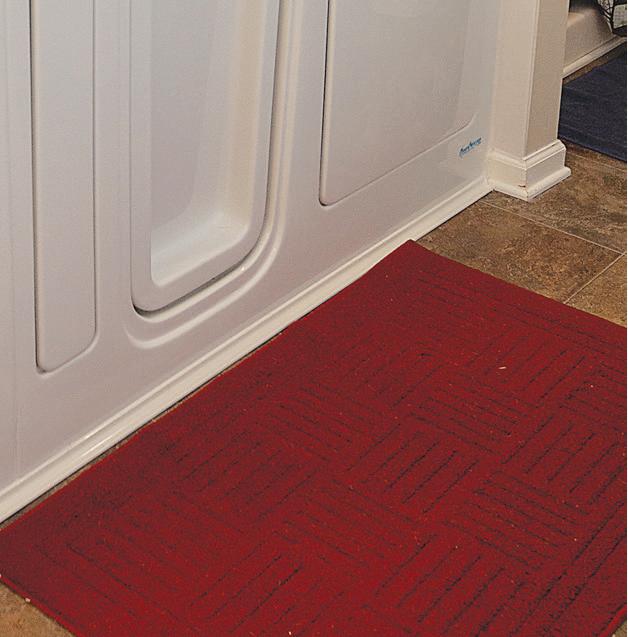








Hop into history at the Hagerman Fossil Beds in Southern Idaho, and experience one of the world’s largest fossil deposits from the Pliocene epoch—roughly 3 to 5 million years ago.
In 1928, a local rancher named Elmer Cook saw fossil deposits eroding along the Snake River. He contacted the United States Geological Survey, which in turn notified the Smithsonian Institution. The Smithsonian conducted four expeditions between 1929 and 1934.
The Smithsonian digs unearthed more than 200 fossils of Equus simplicidens, a predecessor of horses, that more closely resembled zebras. Finding so many fossils together helped researchers realize these horses were likely pack animals. The digs also found previously unfound species such as Platygonus pearcei, an early javelina.
The Thousand Springs Visitor Center opened in 2022, and is a great place to learn about a century of research at the site. The center has exhibits featuring fossils and the knowledge gained at the site, as well as ranger talks to guide visitors through the information.
Until March, the visitor center is open 9 a.m. to 3 p.m. Friday through Sunday. To plan your trip, call 208-933-4105 or visit www.nps.gov/hafo.
































Chenoa, female, 3-year-old Great Pyrenees. Needs a new home with space. 541-805-0969 or bcrp51@outlook.com. 0124
Stud service for mini Australian shepherd. Photos available. Crescent Lake, OR. Liz Sanders, 360-901-1291. 0124
Real Estate
$600K interior Alaskan turnkey roadhouse and 2 dry cabins. Well-maintained on 5 acres with pond. 50 scenic miles south to Denali Park entrance. 907-460-9292. 0524
Let me help you buy or sell ranch, farm and recreation property in Oregon. Fourthgeneration Oregonian, ranch owner. For sale: Sisters, OR, 40 acres. $1.7M. John Gill, 541-480-9161 or johngill@landandwildlife.com. Land And Wildlife brokerage. 0124
Dale store. 11 acres along U.S. Hwy 395. Live and work in this recreational enthusiast area. $695K. Duke Warner Realty, 541-987-2363 or ddwr@ortelco.net. 0124
Off-grid homestead. Ideal for wind/solar power. NE Elko County NV. Has equipment, quarters, shop. Year-round access. Water and power nearby. $35K. geopup58@gmail.com. 0124
Rest in peace among the pines. Two adjacent gravesites in the historic Sumpter cemetery in Northeast OR. A beautiful, peaceful setting. $300. 208-284-5073. 0124
Selling farmette, snowbird potential. Enclosed RV trailer port, garages, power, propane, fenced, county, near Joshua Tree. 58873 Sun Mesa Drive, Yucca Valley, CA. Cindymarkrealty.com/copy-of-houses. 760-285-4911. 0124
Recreational Rentals
Wavecatcher: Oceanfront. Central Oregon coast. Summer $175/night mid-May to midOct.; $140/night mid-Oct. to mid-May (plus cleaning/tax). Three rooms w/double beds. Pets welcome. Wavecatcherbeachrentals.com. Reservations: 541-740-2846. 0324AR
Bend country cabin. Very clean and fully furnished cabin on private ranch. Close to recreation areas. Very nice. $95/night. 541-382-3050; bendcountrycabins@gmail.com. 0124
Rare 1.34-acre, view lot for cabin/retreat in Mt. Aire Canyon, 4 minutes from Salt Lake City 270º views, elevation 7,200 at confluence of 5 canyons. Water onsite, transformer adjacent. $325K. charles@cc-tdi.org, Instagram: @mtairekitebox, 801-232-8038. 0224
Recreational Vehicle
Hook up a steelhead at The Hook Up RV Park in Ahsahka, ID. Daily or longer rents available. 208-391-2919; hookuprvpark@gmail.com. 0124
Call Pahrump Lock and Safe for all your residential, commercial and safe services. 24-hour emergency service in Pahrump, NV. 702-379-8441; Jim@pahrumplockandsafe.com.
We all want delicious, fresh, nourishing food to feed our families. We’ve got pastured pork corn/soy/GMO free. Delivery to your door or drop sites. Order at: www.rural-roots-ranch. com or text Christy, 541-589-4674. 0624
Holistic nurse consultant. Herbal/natural nutritional advice. Complementary medicine practitioner. Free initial consultation. Available in Brookings, OR, area only. 707-951-1882.
Buying American Indian collectibles, Navajo blankets and rugs, baskets, beadwork, etc. Also, quality paintings of the early Southwest and Americas. Send photos or contact: 760-409-3117 or amer.ind.baskets@gmail.com.
Gold, silver, coins/currency, buy, sell. Collections wanted. Fair prices paid. 44 years in retail store. Baker City, OR. 800-556-2133; garrymclin@aol.com. 1024
Old carpenter tools, planes (wood/metal), levels, chisels, slicks, adzes, axes, hatchets, handsaws, old rulers, spoke shaves, wrenches, shipwright tools, old tool chests. 503-659-0009 or 971-666-0659. 0124




We’ve had a busy year at HIGH PLAINS SHEEPSKIN, making and shipping thousands of these great slippers to people in all 50 states. Our durable hard sole sheepskin slippers are now $75.00, sheepskin soled $65.00. Sales price February 1st through February 29th only. Sizes and colors may be limited. Shipping rates apply (call to inquire if ordering by mail).


P.O.
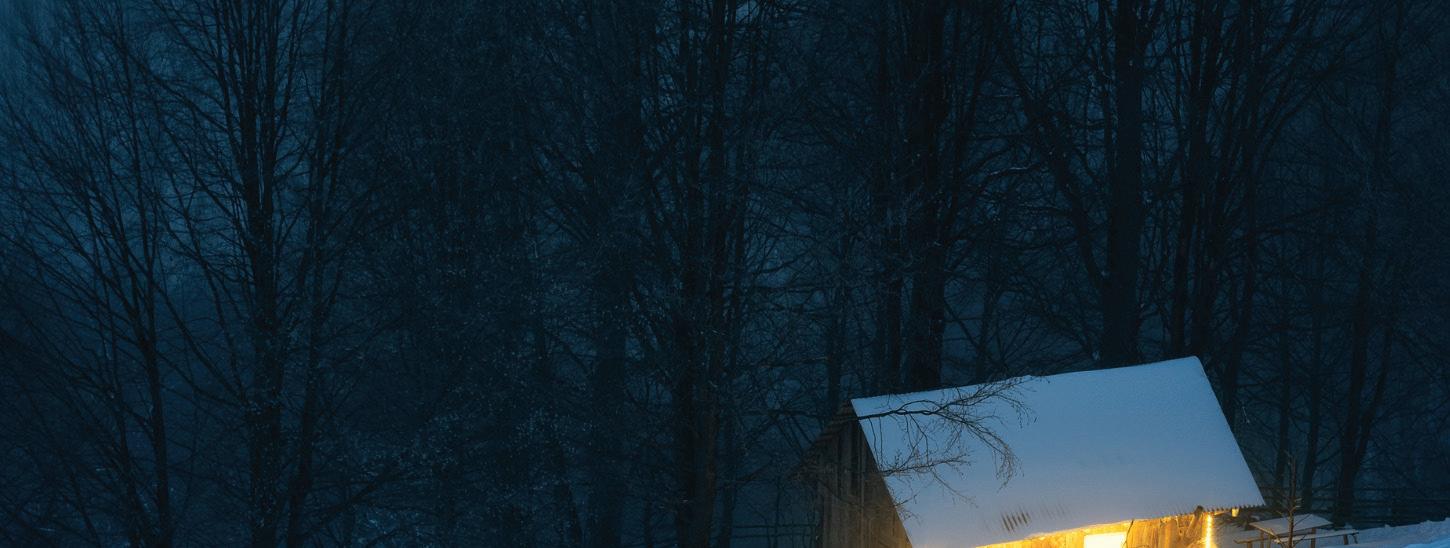


by Abby Berry, NRECA

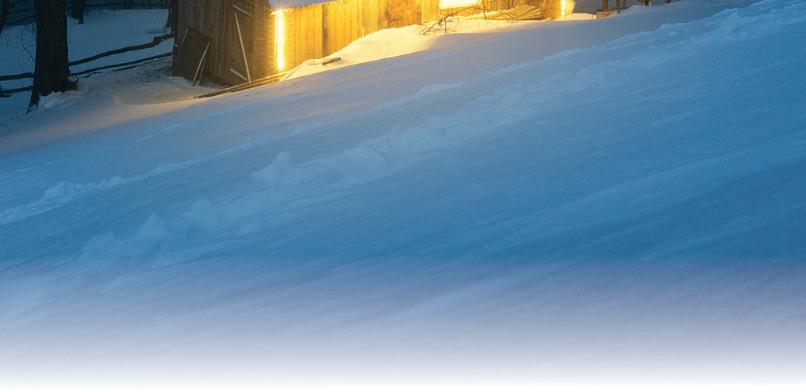
It’s no surprise that winter months bring increased potential for re risks and electrical safety hazards. is makes sense because during the coldest months, consumers are using additional electrical devices and appliances, like space heaters, electric blankets and portable generators.
e National Fire Protection Association estimates that 47,700 home res occur each year in the U.S. due to electrical failure or malfunction. ese res result in 418 deaths, 1,570 injuries and $1.4 billion in property damage annually. is winter, safeguard your loved ones and your home with these electrical safety tips from the Electrical Safety Foundation International.
1. Don’t Overload Outlets. Overloaded outlets are a major cause of residential res. Avoid using extension cords or multi-outlet converters for appliance connections––they should be plugged directly into a wall outlet. If you’re relying heavily on extension cords in general, you may need additional outlets to address your needs. Contact a quali ed electrician to inspect your home and add new outlets.
2. Never Leave Space Heaters Unattended. If you’re using a space heater, turn if o before leaving the room. Make sure heaters are placed at least three feet away from ammable items. It should also be noted that space heaters take a toll on your energy bills. If you’re using them throughout your home, it may be time to upgrade your home heating system.
3. Inspect Heating Pads and Electric Blankets. ese items cause nearly 500 res every year. Electric blankets that are more than 10 years old create additional risks for a re hazard. Inspect your electric blankets and heating pads – look for dark, charred or frayed spots, and make sure the electrical cord is not damaged. Do not place any items on top of a heating pad or electric blanket, and never fold them when in use.
4. Use Portable Generators Safely. Unfortunately, winter storms can cause prolonged power outages, which means many consumers will use portable generators to power their homes. Never connect a standby generator into your home’s electrical system. For portable generators, plug appliances directly into the outlet provided on the generator. Start the generator rst, before you plug in appliances. Run it in a well-ventilated area outside your home. e carbon monoxide it generates is deadly, so keep it away from your garage, doors, windows and vents.
Abby Berry writes on consumer and cooperative a airs for the National Rural Electric Cooperative Association, the national trade association representing more than 900 local electric cooperatives. From growing suburbs to remote farming communities, electric co-ops serve as engines of economic development for 42 million Americans across 56 percent of the nation’s landscape.
Stairlifts were introduced in the 1920s, and not much has changed since. A stairlift has one use: to move you (and only you) between �loors, slowly. And it �its in only one place: your staircase. Finally, a stairlift won’t keep up with you as your mobility needs change over time. For example, a stairlift can’t carry a walker or wheelchair.
A Stiltz Homelift, on the other hand, is an affordable, modern Homelift that is so compact, it �its just about anywhere in your house. It requires no special machine room, no supporting walls, and runs off a standard home electrical outlet. One look at our unique freestanding rail system, and
you can tell right away why we’re called “Stiltz”!
A Stiltz Homelift is 100% safe. The homelift will not operate when the door is open, and sensors stop the lift cab if something is in the way. A battery backup lowers the lift cab in a power outage.
A Stiltz Homelift is versatile. Our homelifts carry two people, or even a wheelchair. And the small footprint means they �it just about anywhere. Install your homelift through the �loor, in a stairwell, up to a landing — even inside a closet!
A Stiltz Homelift is clean and quiet. Our self-contained electric drive system is very quiet. No messy hydraulics, no noisy vacuum systems, no machine rooms required.
A Stiltz Homelift is an extra pair of hands. Move laundry, suitcases, groceries and vacuum cleaners — up and down between �loors.
Some Stiltz customers need a Homelift immediately. But others want to “future-proof” their homes for when the stairs become a challenge.

“I can’t imagine what we’d do without it. I

we had installed our Stiltz Homelift several years ago!” – Mr. James, Roanoke VA



Falls are the leading cause of hospitalization for older adults in the US. More than a quarter of Americans age 65+ fall each year. The average hospital cost for a fall injury is $35,000.
Stiltz is one of the world’s leading Homelift manufacturers, so you’ll be in good hands. Your homelift will be installed and maintained by Stiltz trained professionals — expert technicians who truly care about your freedom.
• Affordable
• Small Footprint
• Full Safety Features
• Clean, Quiet Operation
• Low Power Consumption
• Freestanding Design
• Wheelchair Accessible
• Carry Laundry or Pets
• Fast Installation
• Full Warranty








Offices
Headquarters
750 W. Elm Ave.
Hermiston, OR 97838
541 567-6414
Boardman Operations Center
400 N.E. Eldrige Drive
Boardman, OR 541 481-2220
Hours
7:30 a.m. - 6 p.m.
Monday-Thursday
1-800-452-2273
Report An Outage
1.888.465.5701 day or night
Directors
Bryan Wolfe, President
Jeff Wenholz, Vice President
Steve Platt, Secretary-Treasurer
Lee Docken
Phil Hamm
John Otis
Tom Pitzer
Management
Robert Echenrode, General Manager & CEO
Robert Cromwell, Vice President Power Supply
John Donner, Vice President Finance & Rates
Josh Lankford, Vice President Engineering & Operations
Lisa McMeen, Vice President Administration
Our Mission
Umatilla Electric Cooperative is a member-owned business that sells energy and invests in and supports other services to improve the quality of life in our communities www.umatillaelectric.com
OR-8
One of the most important words in the electric utility industry is certainty. We want certainty that the electricity we provide is clean, affordable, and reliable. Over the years, we have received this certainty because of our longstanding relationship with the Bonneville Power Administration (BPA), which markets the output from federal dams on the Columbia and Snake River Dams. However, current litigation pertaining to the hydropower system has created more uncertainty than ever before when it comes to providing you affordable, reliable electricity.

Plaintiffs – including the State of Oregon – have, for years, used the courtroom to increase BPA’s investment in fish and wildlife programs, despite the fact the customers of BPA spend $685 million annually on these programs. In fact, approximately one-quarter of your electric bill is the result of spending on fish and wildlife. For UEC’s members and our community this is over $4 million a year to fish and wildlife programs.
We recently learned a secret agreement between plaintiffs and the federal government could saddle BPA customers with billions of dollars in new costs. One estimate predicts the cost of electricity could increase as much as 50%. That could result in an increase of nearly $750 a year for every member. What is disappointing is that this agreement was made without prior input from organizations that
represent Northwest public power. Nor does this agreement provide certainty against further litigation that could skyrocket costs even more.
As members of UEC, we need your help during this process. We will look to our elected leaders like Governor Kotek and our congressional delegation to stand up for our rural communities that depend on federal hydropower. Because without their help – the only certainty is that the electricity will be less affordable and reliable.
As your cooperative, our job is to make sure you’re informed, educated, and have insight into the issues and challenges affecting your electric utility. I hope this column encourages you to stay engaged and voice your opinion on these critical matters.
To learn more about how UEC, along with cooperatives across the country, are working together to aid elected officials as they make important federal and state policy decisions, please visit voicesforcooperativepower.com or scan the QR code below. When acting together, as a membership, our voice is louder and helps to broaden our footprint of support for clean, affordable, and reliable electricity.



Robert Echenrode General Manager / CEO